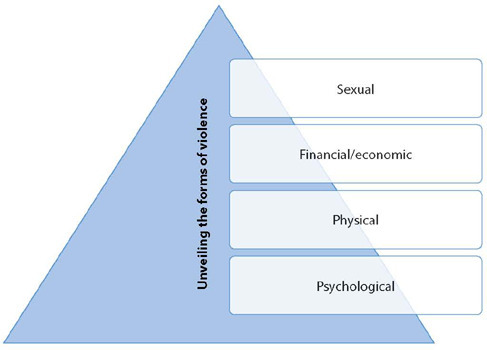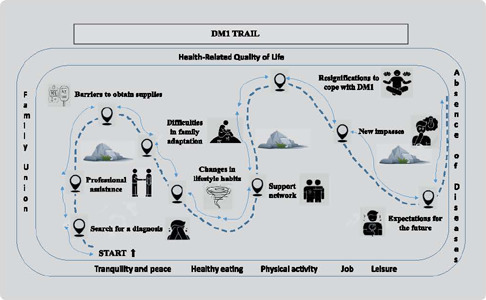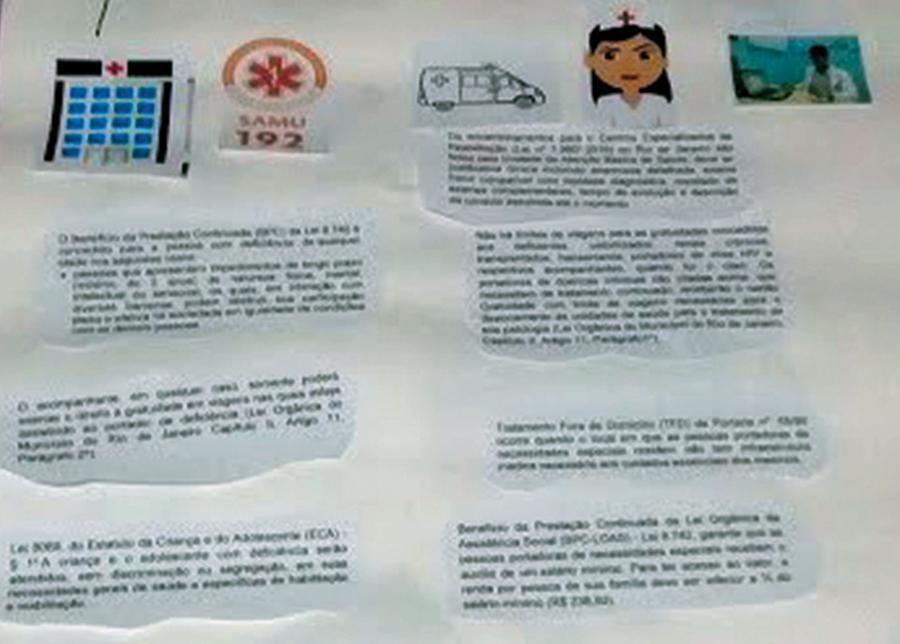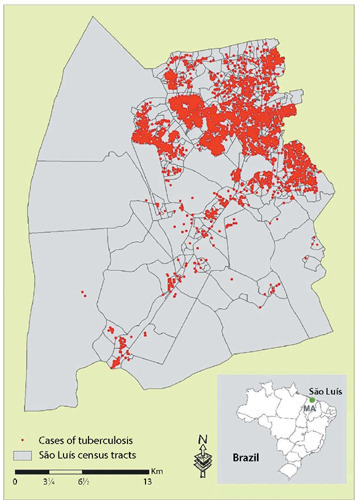-
REVIEW06-28-2024
Clinical outcomes in newborns of pregnant women with COVID-19: integrative review
Revista Brasileira de Enfermagem. 2024;77:e20230400
Abstract
REVIEWClinical outcomes in newborns of pregnant women with COVID-19: integrative review
Revista Brasileira de Enfermagem. 2024;77:e20230400
DOI 10.1590/0034-7167-2023-0400
Views0See moreABSTRACT
Objectives:
to analyze clinical outcomes in newborns of pregnant women with COVID-19.
Methods:
integrative review conducted in PubMed, Web of Knowledge, SCOPUS, CINHAL; 2,111 studies were obtained, and 8 articles comprised the final sample.
Results:
clinical outcomes in neonates of pregnant women positive for COVID-19 were classified according to the following categories: a) contamination by COVID-19, reported in 62.5% of the studies; b) hospital discharge due to improvement, mentioned in 37.5% of the articles; c) death, representing rare cases in 25% of the sample. The most prevalent gestational complication was prematurity, mentioned in 75% of the studies. This complication has been observed due to cases of premature rupture of membranes and placental abruption.
Conclusions:
despite the knowledge of asymptomatic and mildly symptomatic behavior in neonates, it is important to continue the search for new clinical data, as this public has uncertain reactions to SARS-CoV-2 infection.

-
ORIGINAL ARTICLE06-28-2024
Quality of life at work for health professionals during the COVID-19 pandemic
Revista Brasileira de Enfermagem. 2024;77:e20230461
Abstract
ORIGINAL ARTICLEQuality of life at work for health professionals during the COVID-19 pandemic
Revista Brasileira de Enfermagem. 2024;77:e20230461
DOI 10.1590/0034-7167-2023-0461
Views0ABSTRACT
Objective:
to evaluate the quality of life at work of health professionals in direct and indirect care of COVID-19 cases.
Methods:
this was a cross-sectional study with 156 health professionals from a referral hospital. The relationship between sociodemographic and work-related variables and perceived stress and domains of the Quality of Life at Work Scale was investigated using inferential statistics and regression.
Results:
Satisfaction with Compassion was moderate (mean: 38.2), with low perception of stress, Burnout and Secondary Traumatic Stress (means: 18.8, 21.6 and 19.1). There were associations between: education, salary, multiple jobs and direct care with Compassion Satisfaction; low income, being a nurse and working overtime with Burnout; and working more than 12 hours, underlying disease and hospitalization for COVID-19 with Secondary Traumatic Stress.
Conclusion:
quality of life at work was satisfactory, despite the presence of Burnout and Secondary Traumatic Stress.
Keywords:Occupational HealthOccupational StressPsychological BurnoutQuality of LifeWorking ConditionsSee more -
ORIGINAL ARTICLE06-28-2024
Quality of Care Transition for COVID-19 Patients in a University Hospital in Southern Brazil
Revista Brasileira de Enfermagem. 2024;77:e20230402
Abstract
ORIGINAL ARTICLEQuality of Care Transition for COVID-19 Patients in a University Hospital in Southern Brazil
Revista Brasileira de Enfermagem. 2024;77:e20230402
DOI 10.1590/0034-7167-2023-0402
Views0See moreABSTRACT
Objective:
To assess the quality of care transition from hospital to home for COVID-19 patients.
Method:
A cross-sectional study conducted at a University Hospital in Southern Brazil, involving 78 patients discharged after COVID-19 hospitalization. Data collection was performed via telephone using the Brazilian version of the Care Transitions Measure (CTM-15). Data were analyzed using descriptive and analytical statistics.
Results:
The mean quality of care transition was 70.8 on a scale ranging from zero to 100, indicating moderate quality of care transition. The highest score was attributed to factor 1, “Preparation for self-management,” and the lowest to factor 4, “Care Plan.”
Conclusions:
It is important to enhance communication and support provided to patients during the transition process, especially regarding understanding prescribed medications and the development of clear care plans.
-
ORIGINAL ARTICLE06-17-2024
Giving meaning to internalized violence throughout life by older adults living in rural areas
Revista Brasileira de Enfermagem. 2024;77(3):e20230163
Abstract
ORIGINAL ARTICLEGiving meaning to internalized violence throughout life by older adults living in rural areas
Revista Brasileira de Enfermagem. 2024;77(3):e20230163
DOI 10.1590/0034-7167-2023-0163
Views0See moreABSTRACT
Objectives:
to understand the meanings of violence internalized throughout life by older adults living in rural areas.
Methods:
a qualitative study, anchored in the Symbolic Interactionism theoretical framework and the Grounded Theory methodological framework in the constructivist aspect. Data collection occurred through individual interviews. Data were coded using the Atlas.ti software.
Results:
it was possible to identify that the context of rural areas strengthens patriarchy culture as well as contributing to violence silence and naturalization. It was also found that violence is a product of social inequality and gender inequality.
Final Considerations:
older adults living in rural areas internalized the violence suffered in a unique way, and this scenario’s specific aspects can increase intra-family abuse, as there is a patriarchal culture that promotes social and gender inequality.

-
ORIGINAL ARTICLE06-17-2024
Quality of life associated with nursing professionals’ individual resources and work
Revista Brasileira de Enfermagem. 2024;77(3):e20230476
Abstract
ORIGINAL ARTICLEQuality of life associated with nursing professionals’ individual resources and work
Revista Brasileira de Enfermagem. 2024;77(3):e20230476
DOI 10.1590/0034-7167-2023-0476
Views0See moreABSTRACT
Objectives:
to assess the physical and mental components of nursing professionals’ quality of life and associate them with individual, health and work characteristics.
Methods:
cross-sectional research, with nursing professionals from a university hospital in São Paulo. Own questionnaire and validated instruments were applied.
Results:
the overall quality of life was compromised. The physical component was lower in relation to low family income and among those who perceived greater control/pressure at work, and better for those who practiced physical activity and had support of leader and organization. The mental component was lower in professionals who reported dissatisfaction with work, worse self-rated physical health and were older. Scores for both components reduced due to work-related illnesses, worse work ability and increased daytime sleepiness.
Conclusions:
quality of life was statistically associated with controllable institutional factors and individual resources that, except age, can be promoted.
-
ORIGINAL ARTICLE06-17-2024
Website for families of non-breastfed children: development and validation of content and interface
Revista Brasileira de Enfermagem. 2024;77(3):e20230490
Abstract
ORIGINAL ARTICLEWebsite for families of non-breastfed children: development and validation of content and interface
Revista Brasileira de Enfermagem. 2024;77(3):e20230490
DOI 10.1590/0034-7167-2023-0490
Views0See moreABSTRACT
Objectives:
to develop and validate the content and interface of a guidance website to support families in promoting Food and Nutrition Security for children under six months who are not breastfed.
Methods:
methodological study, Knowledge Translation, in two stages of creation: 1) content and validation on the criterion of accuracy in a panel of experts; 2) interface and validation on the criteria of content, language, illustrations, layout, motivation, culture and applicability.
Results:
the “Milky Way” website is freely available: . The content was structured in a decision tree made up of types of milk: milk formula, whole cow’s milk and powdered milk; and utensils: bottle, cup and measuring spoon. There were 46 illustrations to elucidate the content, facilitate understanding and engage the target population. The Content Validity Index was 0.91.
Conclusions:
the website is a validated technology with evidence-based written and pictorial content translated for use with families.

-
ORIGINAL ARTICLE06-14-2024
Meanings attributed to health-related quality of life by caregivers of adolescents with diabetes
Revista Brasileira de Enfermagem. 2024;77(2):e20230314
Abstract
ORIGINAL ARTICLEMeanings attributed to health-related quality of life by caregivers of adolescents with diabetes
Revista Brasileira de Enfermagem. 2024;77(2):e20230314
DOI 10.1590/0034-7167-2023-0314
Views0See moreABSTRACT
Objective:
to interpret the meanings attributed to the health-related quality of life by caregivers of adolescents with type 1 diabetes mellitus.
Methods:
qualitative, descriptive-exploratory study of 14 caregivers of adolescents with diabetes developed at the reference outpatient clinic for endocrine diseases in a city in the state of Paraíba. Interviews were performed between May and September 2021. Inductive thematic analysis of the empirical material, and its interpretation in light of the concepts of health-related quality of life and family functioning were performed.
Results:
the meanings attributed by caregivers to the health-related quality of life of adolescents converged on the feeling of being healthy, healthy eating, satisfactory family income, family involvement in care and effective access to the care network.
Final Considerations:
knowledge of these meanings enables health professionals to develop strategies that meet the unique demands of caregivers experiencing this diagnosis.

-
ORIGINAL ARTICLE06-29-2020
Hand hygiene in high-complexity sectors as an integrating element in the combat of Sars-CoV-2
Revista Brasileira de Enfermagem. 2020;73:e20200316
Abstract
ORIGINAL ARTICLEHand hygiene in high-complexity sectors as an integrating element in the combat of Sars-CoV-2
Revista Brasileira de Enfermagem. 2020;73:e20200316
DOI 10.1590/0034-7167-2020-0316
Views0See moreABSTRACT
Objective:
to perform a situational diagnosis of the behavior of health professionals concerning hand hygiene practices in highly-complex sectors.
Methods:
this quantitative and retrospective study was based on reports (2016 and 2017) of Adult and Pediatric ICUs of a Federal hospital in Rio de Janeiro.
Results:
one thousand two hundred fifty-eight opportunities for hand hygiene were analysed. The chance of professionals sanitizing hands in Pediatric ICUs is 41.61% higher than in Adult ICUs. Concerning proper hand hygiene, the medical team had a 39.44% lower chance than the nursing team. Others had a 30.62% lower chance when compared to the nursing team. The moment “after contact with the patient” presented 4.5275 times the chance in relation “before contact with the patient”.
Conclusion:
in front of hand hygiene recommendations to control COVID-19, diagnostic assessment and previous analysis of the behavior of professionals proved to be positive.

-
ORIGINAL ARTICLE08-19-2019
Nursing practice in home care: the mediation of care by reflexivity
Revista Brasileira de Enfermagem. 2019;72(4):956-963
Abstract
ORIGINAL ARTICLENursing practice in home care: the mediation of care by reflexivity
Revista Brasileira de Enfermagem. 2019;72(4):956-963
DOI 10.1590/0034-7167-2018-0431
Views0See moreABSTRACT
Objective:
To analyze the practice of nurses in home care, considering the mediation of care by reflexivity.
Method:
Unique, qualitative case study, anchored in the dialectical framework. The participants were 13 nurses who work in home care in Minas Gerais. Data were obtained by participant observation and interview, and submitted to critical discourse analysis.
Results:
Nursing care at home involves the repetitions of everyday actions and a degree of unpredictability. Reflexivity, according to Schön’s theoretical framework, emerges as a component of professional practice that leads to the practice of care as a continuous assessment of work, and also to reflection on the challenges imposed by conflicting situations. Reflexivity also stems from professionals’ search for improvements in their practices.
Final considerations:
We identified the presence of actions and knowledge mobilized by the reflexivity of the nurse in the home care setting. The following were the elements of this reflexive practice: knowing-in-action, reflection-in-action and reflection reflection-in-action.
-
ORIGINAL ARTICLE03-30-2020
Professional skills for health promotion in caring for tuberculosis patients
Revista Brasileira de Enfermagem. 2020;73(2):e20180943
Abstract
ORIGINAL ARTICLEProfessional skills for health promotion in caring for tuberculosis patients
Revista Brasileira de Enfermagem. 2020;73(2):e20180943
DOI 10.1590/0034-7167-2018-0943
Views0See moreABSTRACT
Objectives:
to understand the health promotion skills found in the speeches of health practitioners in care for TB patients.
Methods:
qualitative study, developed with seven practitioners involved in care for TB patients, identified from a sociocentric approach, whose speeches were submitted to analysis based on the health promotion skills model in the Galway Consensus.
Results:
there were four domains: Catalyzing change; Leadership; Planning; and Partnerships. These domains resulted from health education actions, contribution of management nursing practitioners, seeking to meet patients’ needs and articulation of professional sectors.
Final considerations:
there were some skill domains in the speeches of health practitioners, with the nurse being quoted in the development of essential skills for health promotion activities, such as catalyzing change and leading care for TB patients.
-
EDITORIAL01-27-2020
Comparison of Interpretive Description and Qualitative Description in the Nursing Scope
Revista Brasileira de Enfermagem. 2020;73(1):e20190339
Abstract
EDITORIALComparison of Interpretive Description and Qualitative Description in the Nursing Scope
Revista Brasileira de Enfermagem. 2020;73(1):e20190339
DOI 10.1590/0034-7167-2019-0339
Views0Interpretive Description BasisID is a small scale qualitative research about a phenomenon regarded in the field that aims to extract themes and patterns. This approach begins with the critical analysis of clinical and theoretical knowledge in the field. It develops the initial conceptual framework, however it does not enter procedures details. Instead, this approach explains […]See more -
ORIGINAL ARTICLE07-31-2020
Educational demands of family members of children with special health care needs in the transition from hospital to home
Revista Brasileira de Enfermagem. 2020;73:e20190156
Abstract
ORIGINAL ARTICLEEducational demands of family members of children with special health care needs in the transition from hospital to home
Revista Brasileira de Enfermagem. 2020;73:e20190156
DOI 10.1590/0034-7167-2019-0156
Views0See moreABSTRACT
Objectives:
to analyze the educational demands of family members of children with special health care needs in the transition from hospital to home
Methods:
qualitative research conducted between February and June 2018, using the handbook on creativity and sensitivity dynamics, from the sensitive creative method; the participants were nine family caregivers of children admitted to a public hospital in Rio de Janeiro; the data were subjected to French discourse analysis
Results:
the educational demands were clinical, centered on the categories complex and continuous care, technological care, modified habits, medication, development and mixed care, and social, related to the supplies and rights of children
Final Considerations:
the social educational demand has emerged as a new demand to be incorporated in the care of these children. The transition from hospital to home should be progressive and have the nurse as its coordinator, with the objective of providing participatory, safe, quality care, articulated within a social network

Search
Search in:
Nuvem de Tags
Aged (144) Atenção Primária à Saúde (239) COVID-19 (104) Cuidados de Enfermagem (269) Educação em Enfermagem (151) Educação em Saúde (139) Enfermagem (930) Estudos de Validação (131) Health Education (144) Idoso (208) Mental Health (149) Nursing (987) Nursing Care (306) Patient Safety (151) Primary Health Care (284) Qualidade de Vida (104) Quality of Life (106) Saúde Mental (145) Segurança do Paciente (150) Validation Studies (108)





